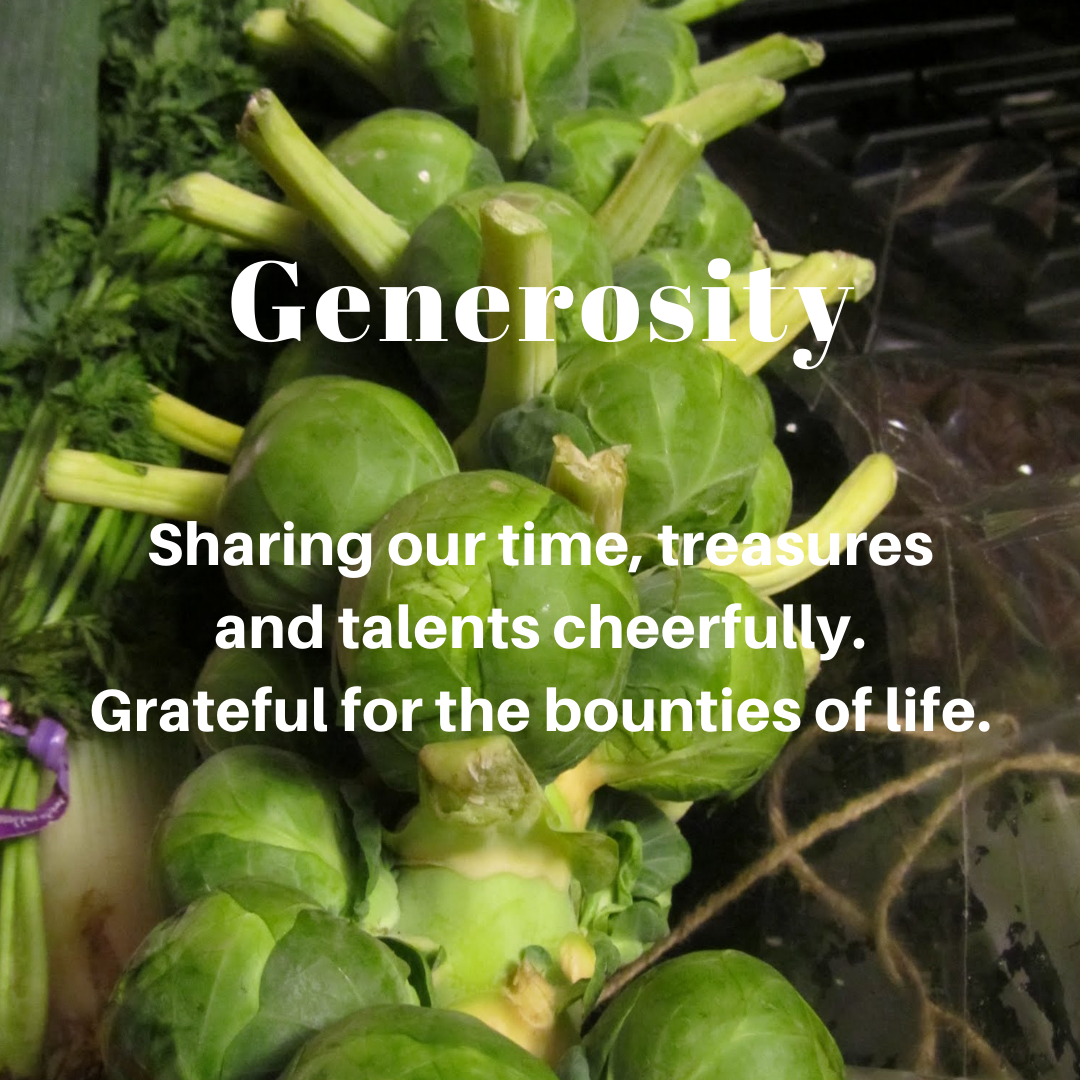
Honesty
Description

Honesty is the foundation of trust and integrity, calling us to live authentically and truthfully in all that we do. It is the courage to be genuine and open, presenting ourselves as we truly are without pretense or exaggeration. Honesty is not just about speaking the truth to others; it is also about being truthful with ourselves—acknowledging our strengths, admitting our mistakes, and confronting the illusions that hold us back.
When we practice honesty, we choose sincerity over deceit, fairness over selfish gain, and transparency over manipulation. It means keeping our word, honoring our commitments, and refusing to take what is not rightfully ours. Honesty gives us the confidence to embrace our true selves, free from the burden of hiding behind facades or fearing judgment.
Living honestly fosters clarity in our relationships, allowing us to connect with others in a meaningful and trusting way. It also invites us to confront difficult truths with compassion, whether by admitting a mistake or healing the wounds of past misbeliefs about our worth. Ultimately, honesty is a beacon that guides us to live with integrity and purpose, honoring the value of truth in ourselves and the world around us.
Affirmations for Honesty
1. I speak my truth with courage and kindness.
This encourages honesty in communication while fostering compassion and ensuring truth is shared respectfully.
2. I honor my commitments and keep my word.
Practicing this builds trust with others and strengthens your sense of reliability and integrity.
3. I see myself and others clearly, free from judgment or exaggeration.
This promotes self-awareness and fairness in perceiving and interacting with the world.
4. I take responsibility for my mistakes and make amends.
Admitting errors with humility strengthens relationships and fosters personal growth.
5. I let go of the fear of judgment and embrace authenticity.
This affirmation empowers you to live truthfully, unburdened by the need to impress others.
6. I align my actions with my values and beliefs.
Living with integrity ensures your external life reflects your internal principles.
7. I choose truth over convenience, even when it’s difficult.
Practicing honesty in challenging situations builds character and resilience.
8. I resist the urge to exaggerate or distort reality.
This helps develop trustworthiness and keeps interactions grounded in sincerity.
9. I acknowledge and release self-deceptions that no longer serve me.
Letting go of internal falsehoods allows for personal growth and genuine self-acceptance.
10. I value honesty as a pathway to deeper connections and trust.
Recognizing the relational benefits of honesty motivates consistent practice in daily life.
Quotes
“An honest man’s word is as good as his bond.” — Proverb
“To believe in something and not to live it is dishonest.” — Mahatma Gandhi
“Honesty is the first chapter in the book of wisdom.” — Thomas Jefferson
Honesty In Family Life
Honesty in family life is the practice of living and communicating with authenticity, openness, and integrity. For parents and children alike, it means being truthful in words and deeds, sharing thoughts and feelings sincerely, and admitting mistakes with courage and humility. Honesty fosters an environment where trust can flourish and every family member feels safe being their genuine selves.
When parents model honesty, they teach children that it is not just about avoiding lies but about living in alignment with values and being accountable for actions. Children learn to express their thoughts and feelings openly while respecting others’ perspectives, creating a foundation of mutual trust and understanding.
In family life, honesty also means keeping promises, admitting mistakes, and avoiding exaggeration or deceit. It builds resilience and connection by teaching family members that challenges or disappointments can be faced together, with truth as the guiding principle. By practicing honesty, families nurture stronger relationships, deepen respect for one another, and create a safe space where everyone can grow and thrive.
Balancing Honesty
When practiced in balance, honesty becomes a powerful force for trust, connection, and growth within a family. However, when honesty is overdeveloped, it can come across as blunt or insensitive, and when underdeveloped, it may lead to secrecy or a lack of authenticity. Balancing honesty with complementary virtues helps ensure it remains a positive and constructive element in family life.
-
-
- Compassion – Softens honesty by ensuring truth is expressed with care and consideration for others’ feelings.
- Tact – Guides how honesty is shared, ensuring the timing and manner of delivery are respectful and effective.
- Courage – Strengthens honesty by encouraging the truth to be spoken, even in difficult situations, without fear or avoidance.
- Humility – Keeps honesty grounded, helping us admit our own mistakes and approach others with fairness and openness.
- Discernment – Helps determine what truths need to be shared and how to present them in ways that build trust rather than harm.
- Patience – Encourages taking the time to express truth thoughtfully, avoiding impulsive or reactive honesty that may cause hurt.
- Respect – Ensures honesty honors the dignity and autonomy of others, recognizing their right to receive truth in a kind and constructive way.
- Forgiveness – Balances honesty by allowing space for mistakes and healing, even when truth reveals imperfections.
- Moderation – Prevents overemphasis on truth-telling by recognizing the value of silence or discretion in certain circumstances.
- Trust – Creates a foundation for honesty, as trust allows family members to feel safe being truthful with one another.
-
Maintaining balance in virtues ensures that honesty is practiced in ways that build trust, strengthen relationships, and promote growth. Balancing honesty with virtues like compassion, tact, and humility for parents and children fosters a family culture of authenticity and care. By practicing these complementary virtues, families can create an environment where truthfulness enriches rather than disrupts their shared lives.
Joe is a husband, father, grandfather, author, speaker, educator, course creator, and parent/family coach.
He helps parents develop unity, find clarity, communicate, and develop consistency in their parenting with the Four C’s of Successful Families. You can find his work on social media.
In addition, the Four C’s newsletter is enjoyed by many as it encourages parents to self-care, build their relationships with their partners, and raise their children.
And he loves to golf!




